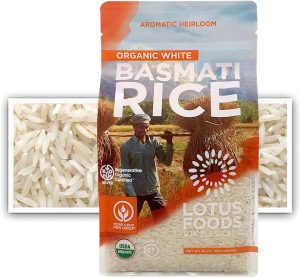The British Journal of Nutrition published results from a major study that found conclusive evidence that organic crops, and the food made from them, are nutritionally superior to their conventional counterparts, according to the Organic Trade Association (OTA, Washington D.C.).
The study corrects many of the shortcomings of earlier studies and should put to rest any doubts about the benefits of organic, according to Dr. Jessica Shade, lead scientist and director of science programs for The Organic Center (TOC).
“This is a ground-breaking study,” said Shade. “This important research should help greatly to dispel consumer confusion about the benefits of organic.”
According to Shade, the nutritional differences between conventional and organic crops have always been a much debated topic. “This significant study reevaluates the issue from a more inclusive, statistically accurate standpoint and strongly shows that organic fruits and vegetables have definite health benefits to conventionally grown products,” said Shade.
The OTA reported that after analyzing 343 studies, an international team of experts led by Newcastle University found that organic crops and crop-based foods are up to 60 percent higher in a number of key antioxidants than conventionally grown crops. Research also found pesticide residues are found much more frequently in conventional foods and significantly lower levels of a toxic heavy metal is detected in organic crops.
Professor Charles Benbrook, one of the authors of the study and a research professor at the Center for Sustaining Agriculture and Natural Resources at Washington State University, said the findings of this study strongly support the existence of health benefits stemming from consumption of plant-based organic food and beverages.
“Our results are highly relevant and significant, and will help consumers sort through the often conflicting information on the nutrition of organic and conventional plant-based foods,” said Benbrook.
A recent survey by OTA found that eight out of 10 U.S. families now purchase organic products. In nearly half of those families, concern about their children’s health is a driving force behind that decision.
“Parents are becoming more informed about the benefits of organic,” said Laura Batcha, OTA executive director and CEO. “This study will do much to educate consumers even more and help them to make the best choices for their families.”
For more information, visit www.ota.com.













